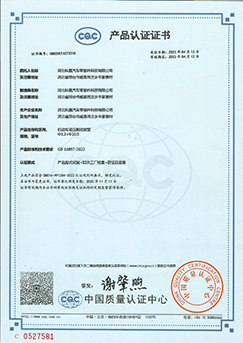trailer hydraulic brake lines
Dec . 12, 2024 03:21 Back to list
trailer hydraulic brake lines
Understanding Trailer Hydraulic Brake Lines A Comprehensive Guide
When it comes to trailers, ensuring safety during transport is paramount, and one of the critical components of a trailer's braking system is the hydraulic brake line. These lines play an essential role in the hydraulic braking mechanism, allowing for smooth and effective stopping power. In this article, we will dive into the functionality, maintenance, and importance of trailer hydraulic brake lines.
The Basics of Hydraulic Brakes
Hydraulic brakes operate on the principle of Pascal's Law, which states that pressure applied to a confined fluid is transmitted undiminished throughout the fluid. In the case of trailers equipped with hydraulic brakes, this means that when the driver applies pressure to the brake pedal, it creates hydraulic pressure that is transmitted through the brake lines to the brake components on the wheels.
A typical hydraulic brake system consists of several key parts the master cylinder, brake lines, brake calipers, and brake pads. The master cylinder generates the hydraulic pressure, while the brake lines channel this pressure from the master cylinder to the calipers, which then compress the brake pads against the rotors to slow down or stop the trailer.
Importance of Hydraulic Brake Lines
1. Safety The primary importance of hydraulic brake lines lies in safety. Properly functioning brake lines ensure that the trailer can stop effectively, reducing the risk of accidents. Deteriorated or damaged brake lines can lead to brake failure, which can have catastrophic consequences.
2. Performance Efficient brake lines contribute to the overall performance of the trailer's braking system. Well-maintained lines facilitate quick and responsive braking, making it easier to control the trailer, especially when carrying heavy loads.
3. Durability Hydraulic brake lines are designed to withstand high pressure and harsh environmental conditions. Understanding their construction helps ensure they last longer, thereby providing reliable and consistent brake performance over time.
Maintenance and Inspection
trailer hydraulic brake lines

Regular maintenance of hydraulic brake lines is crucial for the safe operation of trailers. Here are some essential maintenance tips
- Visual Inspections Regularly inspect the brake lines for signs of wear, corrosion, or leaks. Look for any cracks or bulges in the lines, which can indicate impending failure.
- Fluid Checks Ensure that the hydraulic brake fluid is at the appropriate level. Low fluid levels can reduce braking performance and lead to air entering the brake lines, which can cause spongy brakes.
- Bleeding the Brakes Over time, air can accumulate in the brake lines, leading to reduced braking efficiency. Bleeding the brakes involves removing this air, ensuring that the hydraulic system remains pressurized and responsive.
- Replacing Worn Components If any part of the hydraulic brake system shows signs of wear or damage, it’s essential to replace it promptly. This includes not just the brake lines, but also the master cylinder, calipers, and brake pads.
Choosing the Right Brake Lines
When it comes to selecting hydraulic brake lines, quality is paramount. Look for brake lines made from durable materials that can withstand high pressures and resist corrosion. Stainless steel braided lines are popular among trailer owners for their rigidity and resistance to wear. However, rubber lines can also be a viable option for their flexibility and ease of installation.
Another essential aspect is to ensure that the brake lines you choose are compatible with your trailer's specifications. Consult the owner's manual or a professional to determine the correct size and pressure rating required for your trailer.
Conclusion
In summary, the hydraulic brake lines of a trailer are vital for safe and effective braking. Understanding their function and importance, and regularly maintaining them, can make a significant difference in the safety and performance of your trailer. By keeping an eye on the condition of these lines and addressing any issues immediately, you can ensure that your trailer remains roadworthy and capable of handling the demands of transport. Whether you're a seasoned trailer owner or a newcomer to towing, taking the time to understand and care for your hydraulic brake lines is an investment in safety and performance.
